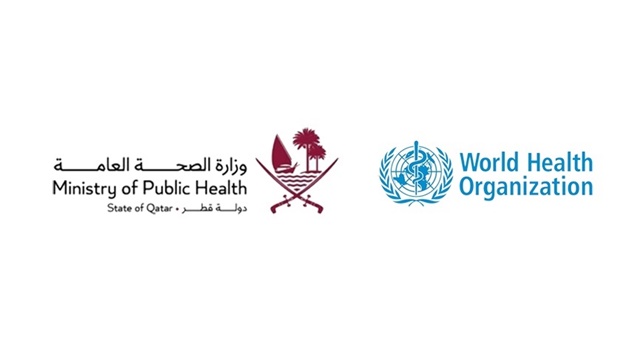Health security is a key pillar of the three-year partnership - "Sport for Health" - between the MoPH and WHO. It includes health promotion, risk assessment and protocols for mass gatherings inside and outside stadiums, event-based surveillance to protect people from outbreaks of infectious diseases, and risk reporting.
MoPH's Director of the Department of Health Protection and Control of Communicable Diseases Dr Hamad Eid al-Rumaihi said that huge numbers of fans for major sporting events such as the World Cup may burden the public health services and response resources of the State or the host community, considering that preparedness is crucial for any effective health security plan, noting that the healthcare sector in Qatar has witnessed a remarkable transformation in recent years after the opening of 10 new hospitals and 16 new primary healthcare centres since 2010 in the public sector alone.
Al-Rumaihi said that another important area of development is the workforce, as it is very important to build a strong and highly skilled team of healthcare professionals in the health system to lead the provision of high-quality healthcare services to the population of Qatar, emphasising that all football fans visiting Qatar to attend the football World Cup will receive healthcare services from HMC teams according to the highest international standards.
WHO representative in Qatar Dr Riana Bouhaqa expressed her admiration for the successful experiences of the State, especially that the Arab Cup, which revealed the possibility of successfully organising mass gatherings if properly managed.
She noted that it is possible to reduce the risks arising from gatherings by applying specially designed precautionary measures for each event to the venues, participants and the context in which the event is held, in a general framework to strengthen the surveillance and public health measures followed in the host country.
She added that their plans today are to build on the best practices and recommendations issued by the FIFA Arab Cup Qatar 2021, strengthen health emergency preparedness, and ensure the maintenance of precautionary measures to contain infectious diseases, including Covid-19, in order to keep people safe and healthy.
The partnership, "Sport for Health", aims to create an action program for the protection and promotion of health in future mass gatherings, as the World Cup represents a unique opportunity to develop a new approach to organising mass sports events, taking into account the lessons learned from the pandemic, and promoting sport and health as a path to recovery.
MoPH's Director of the Department of Health Protection and Control of Communicable Diseases Dr Hamad Eid al-Rumaihi said that huge numbers of fans for major sporting events such as the World Cup may burden the public health services and response resources of the State or the host community, considering that preparedness is crucial for any effective health security plan, noting that the healthcare sector in Qatar has witnessed a remarkable transformation in recent years after the opening of 10 new hospitals and 16 new primary healthcare centres since 2010 in the public sector alone.
Al-Rumaihi said that another important area of development is the workforce, as it is very important to build a strong and highly skilled team of healthcare professionals in the health system to lead the provision of high-quality healthcare services to the population of Qatar, emphasising that all football fans visiting Qatar to attend the football World Cup will receive healthcare services from HMC teams according to the highest international standards.
WHO representative in Qatar Dr Riana Bouhaqa expressed her admiration for the successful experiences of the State, especially that the Arab Cup, which revealed the possibility of successfully organising mass gatherings if properly managed.
She noted that it is possible to reduce the risks arising from gatherings by applying specially designed precautionary measures for each event to the venues, participants and the context in which the event is held, in a general framework to strengthen the surveillance and public health measures followed in the host country.
She added that their plans today are to build on the best practices and recommendations issued by the FIFA Arab Cup Qatar 2021, strengthen health emergency preparedness, and ensure the maintenance of precautionary measures to contain infectious diseases, including Covid-19, in order to keep people safe and healthy.
The partnership, "Sport for Health", aims to create an action program for the protection and promotion of health in future mass gatherings, as the World Cup represents a unique opportunity to develop a new approach to organising mass sports events, taking into account the lessons learned from the pandemic, and promoting sport and health as a path to recovery.

